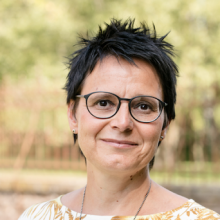Alterna(rra)tives in the Canada-US Borderlands
Abstract
This project wants to retrace the function of the US-Canada border in the formation and consolidation of the two North American nations. It aims at developing a methodological framework that allows to analyze a series of historical and literary texts, images, films, and other cultural texts that function as alterna(rra)tives, that is subjugated knowledges, which have been buried deep down in national cultural imaginaries but which have the power to resurge as haunting presences in contemporary cultural texts.
Questions and topics
The project “Alterna(rra)tives in the Canada-US borderlands” deals with the “other” border in North America, showing how borders and frontiers are constitutional not only of nation-states, but also of nation-based cultural, somatic and libidinal corpo-realities. In my conceptual imaginary, the geo-political border itself stops being a suture sowing together two different and distinct national fabrics, and becomes a texture: a complex and multi-dimensional trope woven of numerous threads, such as politics, economy, cultural practices, racial, sexual and other discourses, which combine and intersect to create a trans-national continuum. Drawing on Sandro Mezzadra’s proposal to approach borders not simply as objects of study, but, through concepts such as labor, also as methods, the analyses of selected texts from history, literature and performance practices (such as the writings of Thomas King, the performance pieces of Kent Monkman, Adrian Stimson, and Shelley Niro, and the art installations by Annie Han and Daniel Mihalyo ) will be performed in a decolonial mode. Looking beyond the fixation on “white” settlers and settler-colonial civilization, the project aims to include the thought and cultures of Indigenous peoples who have been constitutively erased from narratives of nations, territories, bodies and borders.
Key Moments
- Resident research fellowship “The ‘Other’ Border: Canada and the United States” at the International Forum for the U.S. Study (IFUSS) at the U of Illinois at Urbana-Champaign in February/March 2018
- Member of the working group “Border Textures“ (bordertextures.org)
- Co-Speaker of the DFG-funded International Research Training Group “Diversity” (together with Trier and Montréal)
- Publication: “Recovering Queequeq’s Body: Alterna(rra)tives in the Borderlands.” Performing Ethnicity, Performing Gender: Transcultural Perspectives. Eds. Bettina Hofmann and Monika Müller. New York: Routledge, 2016. 53-68.
Website http://www.amerikanistik.uni-saarland.de
Contact

